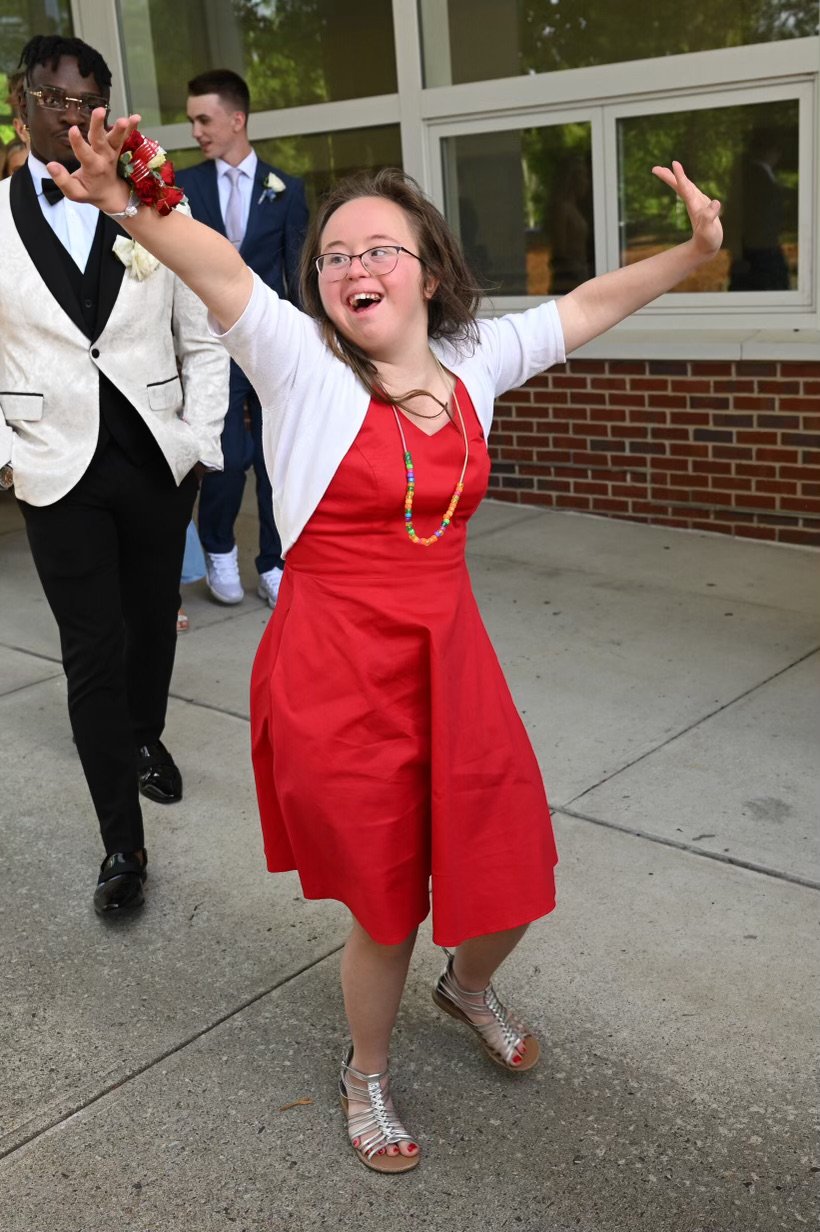Cheers for unstoppable Lucy, as she graduates from high school
/THE BOSTON GLOBE
BEVERLY BECKHAM
The words always come. That’s what I tell myself when I can’t find them. I sit. I think. And I wait. And when the words still won’t come? I ask myself what it is that I am struggling so hard to say?
Maybe this time what I’m struggling to say is simply thank you. Thank you, world. Thank you, Canton High. Thank you, friends and relatives and neighbors and teachers and doctors and dance instructors and used-to-be strangers who have walked this road with us, sometimes many times, leading the way.
When my granddaughter Lucy was born with Down syndrome 19 summers ago, there were so many naysayers. I hear them in my head still. She’ll never. Don’t expect. She won’t.
But she has and she did and she will. Because there were more optimists and believers saying she can than defeatists saying she can not.
Lucy graduated from Canton High School last Saturday morning. The ceremony was held outdoors under a blue sky with just enough clouds floating by to keep the temperature perfect. Masks were not required so you could see all the smiling, beautiful, young faces. Lucy was just one of 255 young men and women to walk across the stage and accept her diploma.
Her father filmed the moment. Later that day, at home, I watched the video again and again and again. It captured Lucy in her cap and gown, strutting across the stage smiling and shaking hands with the principal and the school superintendent, accepting her diploma along with the rest of her peers, while the crowd whooped and clapped and cheered.
It’s the cheers that moved me and the cheers that move me still.
When Lucy was born in 2003, there were no cheers. There was no someone from MDSC (Massachusetts Down Syndrome Conference) showing up at the hospital with a gift package and a smile and assurances that Lucy and her family would have a supportive community behind them. That would come soon after. But not in time for us. There was no easy access to other parents of children with Down syndrome either, the Internet and Google not what they are today. There were no models with Down syndrome posing for magazines back then, few current educational books about children with Down syndrome, no personal blogs, and though by law children with Down syndrome had to be included and integrated into public school classrooms starting with early intervention, the interpretation of this law varied from school to school and from year to year.
Since 2003, all this has changed. There has been progress, and Lucy is part of that progress. She is the first person with Down syndrome to graduate from Canton High School.
I remember the dentist who dismissed her when she was just 4 years old. I chose this dentist. “What does she need straight teeth for?” he asked me. I remember the eye doctor who told my daughter that she should wait to see if Lucy is “functional” before opting for eye muscle surgery. I remember the special education professional who snapped gum, yawned, and refused to make eye contact through every mandatory meeting she was forced to attend.
Every rebuff, every closed mind, every closed door hurt.
Now, looking back, I can see that there were open minds and open doors, too, and that we had more helpers than we realized.
We must have because look at Lucy now.
A week before she graduated, Lucy went to her senior prom. Her cousin Adam, who is also a 2022 graduate of Canton High, said that Lucy never left the dance floor, that she danced all night. Before her prom, Lucy was awarded Canton High School’s Drama Club Senior of the Year, not only for her participation in school plays but “for her joy of performing.” Someone videotaped that award, too. And, once again, all you hear are cheers.
I e-mailed the video of Lucy’s graduation to her uncle, my son who lives in Scotland. “Makes me wish that somehow, someone could have shown Lauren and Dave this video 19 years ago when we were all afraid of the unknown,” he texted back.
What we were most afraid of then — in addition to all the medical coulds and woulds — was how the world would treat Lucy. Would she have friends? Would she be appreciated? Would she be valued? Would she be loved?
Lucy is all these things because she wasn’t cast aside, because she wasn’t educated in a separate room, because she wasn’t denied participation in the things she loves, theater and music and dance. It took a village. It will continue to take a village made up of family and friends and educators and strangers who become friends.
People talk about inclusion. This is what inclusion is. And this is why Lucy thrives.



